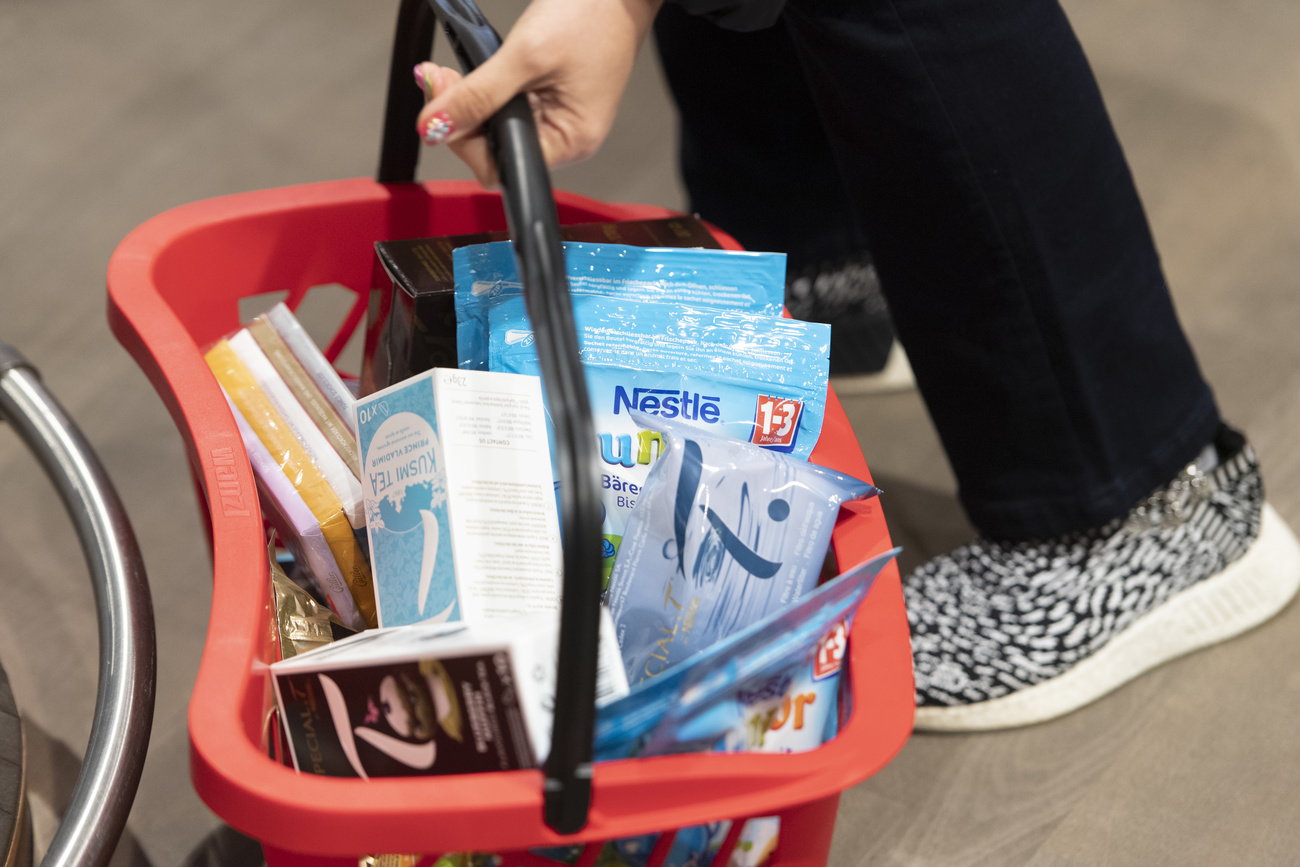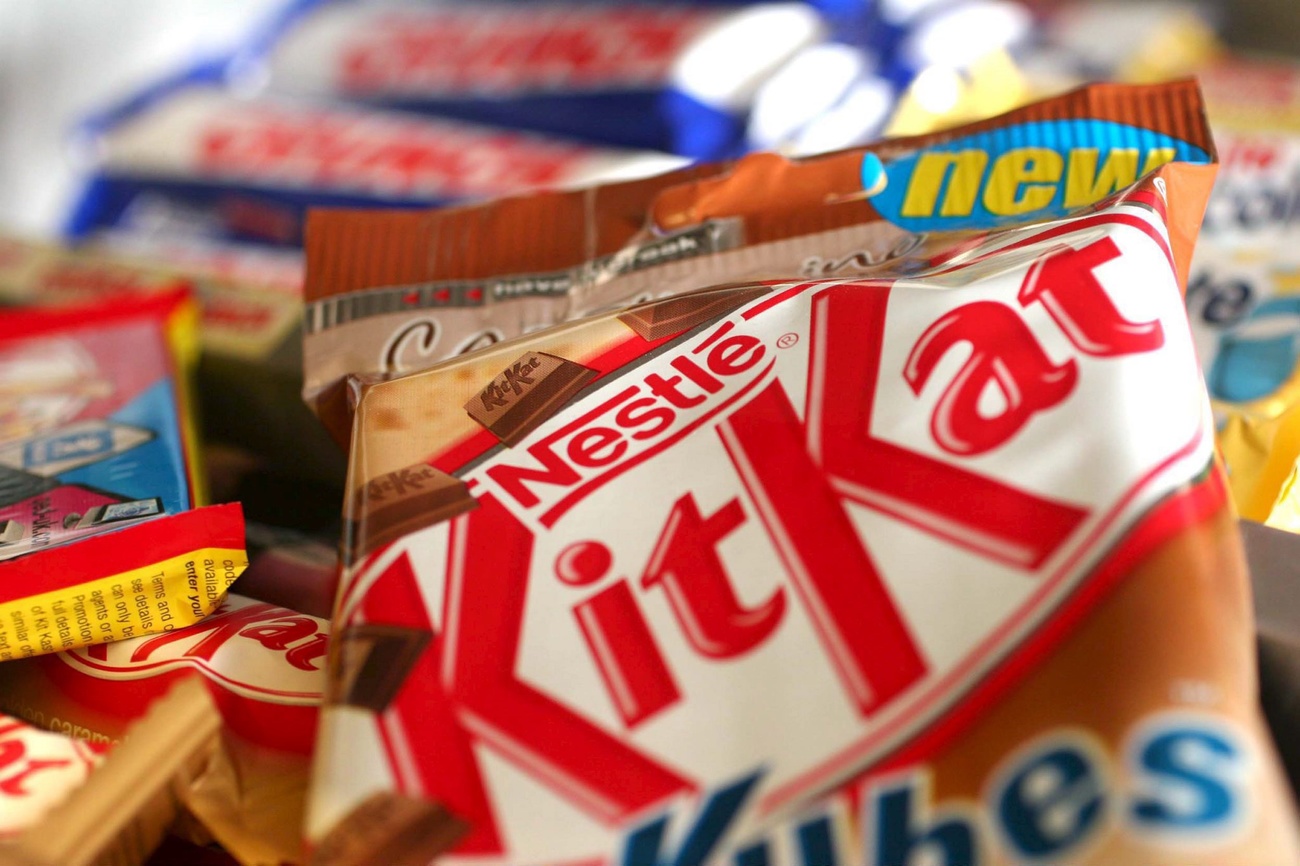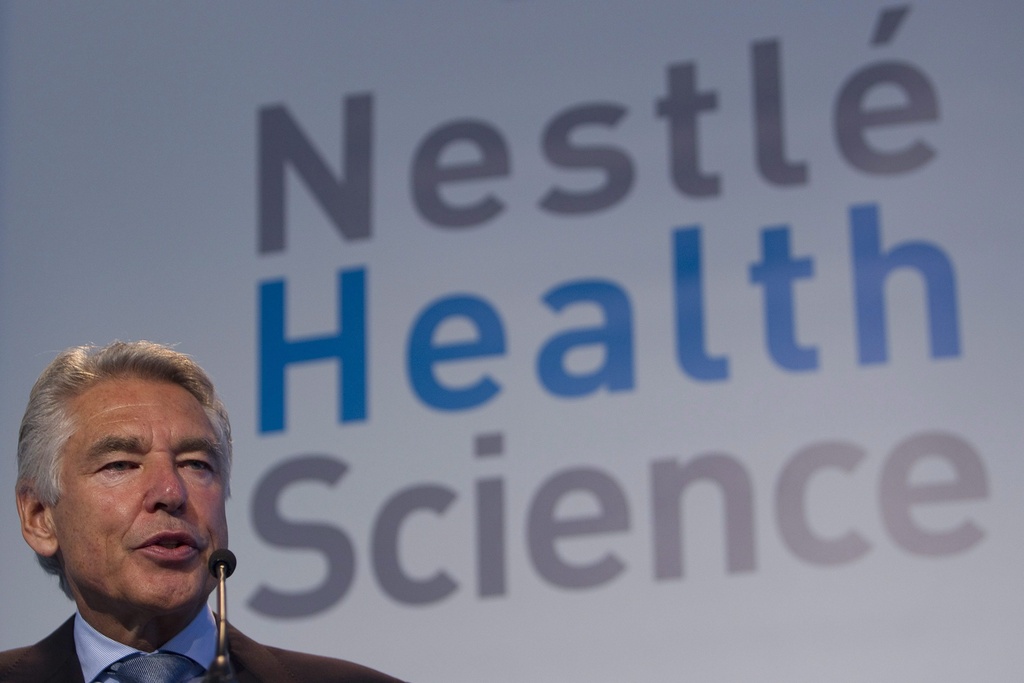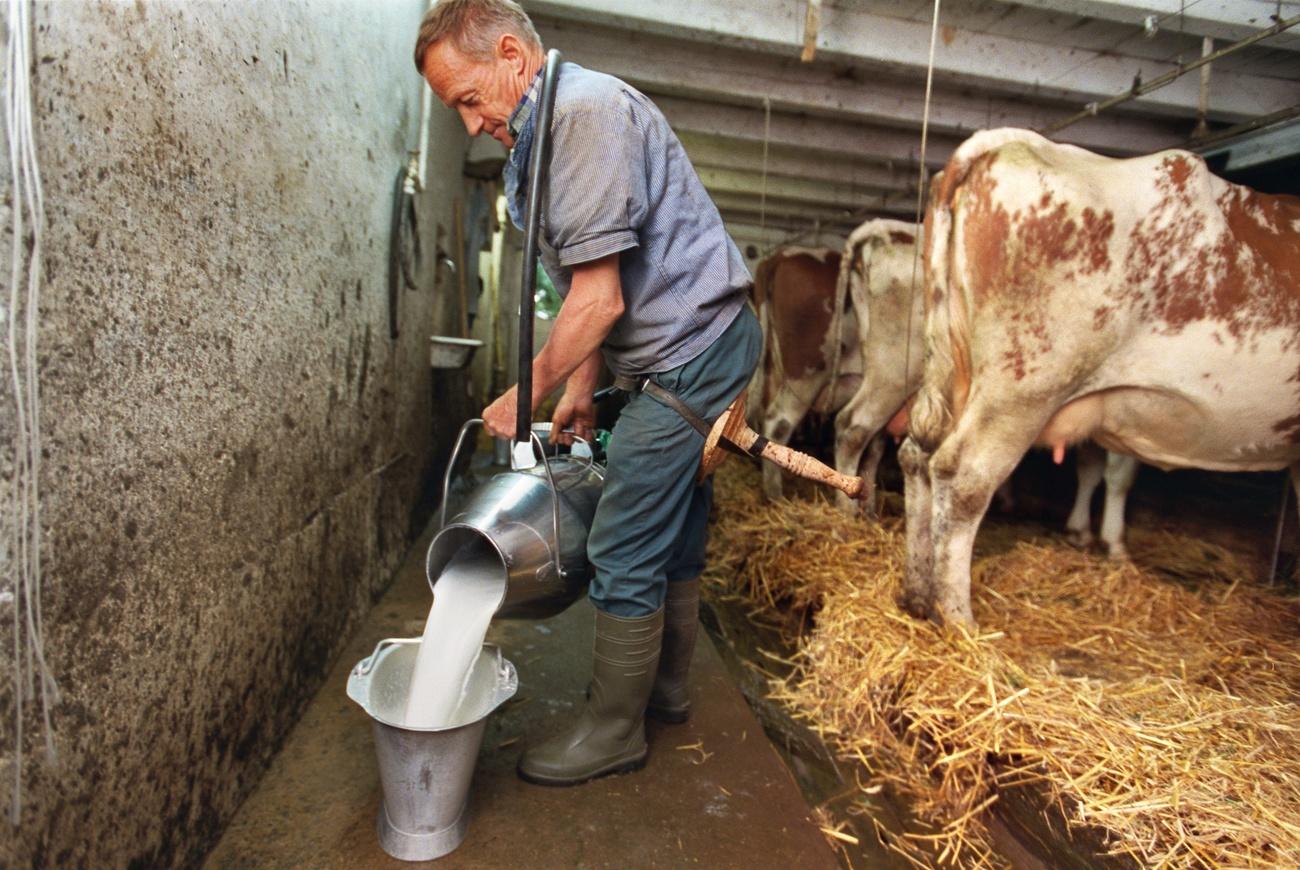Nutrition ranking exposes hollow claims of global food companies

Swiss food giant Nestlé retained its top spot in a global nutrition ranking of the biggest food and beverage manufacturers despite only 29% of its products assessed as healthy.
On Monday, the Access To Nutrition Initiative (ATNI) revealed its fourth ever Global IndexExternal link that ranks the world’s 25 largest food and beverage manufacturers on the basis of their commitment to healthy nutrition. Nestlé held onto the first place it acquired in 2018, closely followed by Unilever. The Global Index evaluates companies over seven categories, including product portfolio, labelling, governance, marketing, accessibility, employee lifestyles and engagement.
“Nestlé’s top position is recognition of its longstanding commitment to nutrition and health as well as its engagement to help tackle the global challenges of obesity and undernutrition,” the company said in a press release.
However, a closer look at the winner’s performance shows that processed food manufacturers have a long way to go before their products can be called healthy options. The ranking looked at 2,760 products sold by Nestlé across the world. Of these, only 29% were found to be healthy. To be classed as healthy, a product must score at least 3.5 out of a maximum of 5 in the Health Star Rating (HSR) used in Australia and New Zealand to help consumers compare packaged food products.
A HSR of 3.5 (the minimum needed to be classified as healthy) would require 100g of the product to have no more than 1,020kJ of energy, 1g of fat, 2.1g of sugar and 645mg of sodium and at least 8g of fibre. Thus, 71% of the Nestlé portfolio evaluated didn’t meet this requirement.
Nestlé’s relatively better performance compared to other competitors was not all down to efforts to improve the nutrition profile of its products. The improvement of its mean HSR score across eight selected countries from 1.8 in 2018 to 2.7 in 2021 is one such example.
“This can be largely attributed to the divestment of less healthy categories, i.e. Ice Cream in Mexico and Ice Cream and Confectionery in the USA,” said ATNI on its website.
In addition, Nestlé’s HSR for some its most popular products such as breakfast cereals, dairy, and sauces, dressings and condiments were lower than the average for companies assessed in these categories.
Company response
“You mention the percentage of distinct products, but if you look at percentage of sales derived from healthy products, the percentage of healthy products improves to 43%. This is an important measure, as it shows where consumers are going and where we are putting our efforts,” a company spokesperson told SWI swissinfo.ch.
The representative also pointed out that the Nestlé sells a wider range of food products than most of the other companies in the rankings, including indulgent ones like confectionery that are less likely to be healthy. In addition, some of its important categories like infant nutrition and pure coffee are not assessed by HSR which means up to half its portfolio is excluded from the evaluation.
Nestlé made headlines in May when the media got hold of a presentation circulated to executives that acknowledged that 60% of its mainstream products could not be called healthy and will never become so. The presentation also stated that 37% of its product portfolio achieve a HSR of 3.5.

In compliance with the JTI standards
More: SWI swissinfo.ch certified by the Journalism Trust Initiative





You can find an overview of ongoing debates with our journalists here. Please join us!
If you want to start a conversation about a topic raised in this article or want to report factual errors, email us at english@swissinfo.ch.